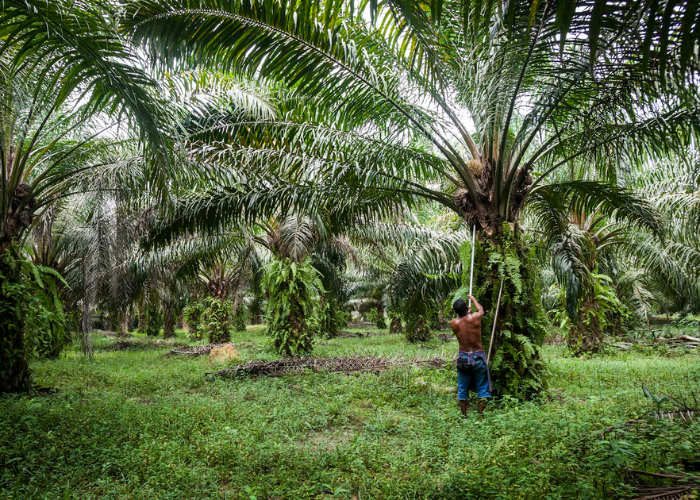Palm oil sustainability: responsible production and consumptionBY ALVARO CORONA
- 4 June 2023
- Posted by: Competere
- Categories: highlights, Media, News, SUSTAINABLE NUTRITION

When produced sustainably, palm oil is the most sustainable vegetable oil. We have been stating this for years and this was even confirmed in the webinar organised by the Unione Italiana per l’Olio di Palma Sostenibile, which involved 4 speakers who focused on all the necessary steps for responsible production, required certification, and consumption of palm oil.
>> Read the article EUDR and the case of sustainable palm oil <<
EU’S INFLUENCE ON PALM OIL
We now know that palm oil uses the least amount of water and land when produced sustainably and is already in 50% of the products we can find at the supermarket. Currently, the EU leads the market in the consumption of palm oil as 46% of global CSPO production is exported to Europe. Of the palm oil that is exported to the EU, 93% of it is RSPO certified. The demand for palm oil positions the EU as a driving factor in the palm oil market. However, it is important for Europe to continue to be a driving force. In fact, if it were to stop being so, contrary to what many believe, palm oil production would continue, but the produced oil would be directed towards less sustainable countries such as China and India.
CONSUMER AWARENESS
The current implementation of regulations and laws prohibiting deforestation is now crucial. In fact, if no action is taken, there will be an increase in deforestation of 150,000 hectares per year. But there is more: consumers need to be made aware that sustainability is not just an environmental matter as sustainability can be applied to social and economic factors when producing a product. 85% of people associate sustainability only with environmental matters. When consumers see green claims on products at the supermarkets they are misled as to the extent of their sustainability. 53% of environmental claims are vague and misleading yet 40% of consumers are confident in the environmental self-claims of producers. Consumers get disoriented with the amount of misleading information regarding sustainability. This is what happened with palm oil as well, which has been boycotted for years, accused of causing harm to health and the environment. We must spread awareness and teach others that every product has its own story of, workers’ rights, economic, social, and environmental impacts that encompass what a truly sustainable product is. The same applies to palm oil, which over the years has proven to be a resilient and sustainable industry, dispelling all the misinformation that has been spread.
Image credits: courtesy of Conservation International >>>
